Climate Initiative
The Climate Initiative supported organizing for climate action ahead of COP21 and the 2016 US presidential elections.
The first round of grants in the summer of 2015 was designed to create a “surround sound” of public pressure leading up to the crucial UN climate conference in Paris (COP21), with the hope of creating significant momentum and pressure for the creation of a strong international agreement on climate action. The grants included both in global grassroots mobilization and art and storytelling projects.
Mobilizations: Partnerships among the Global Call for Climate Action, the International Climate Action Network, 350.org, Grassroots Global Justice, Grassroots International, and the Climate Justice Alliance led to creative and powerful actions outside the UN negotiating halls in the streets of Paris.
Storytelling: Funding for ArtCOP21 curated the hundreds of artistic projects engaging climate in Paris and beyond. Specific projects protested fossil fuel industry sponsorships of the Louvre, wheat-pasted photos of climate impacts on the streets of Paris, and set up public installations inviting people to reflect on what they loved and hoped never to lose to climate change, weaving demands for climate action throughout the city.
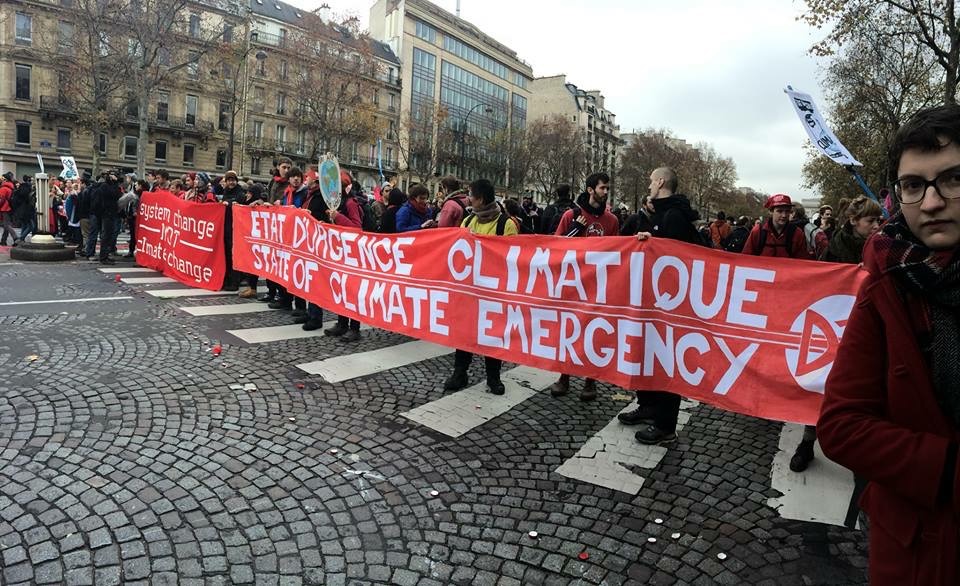
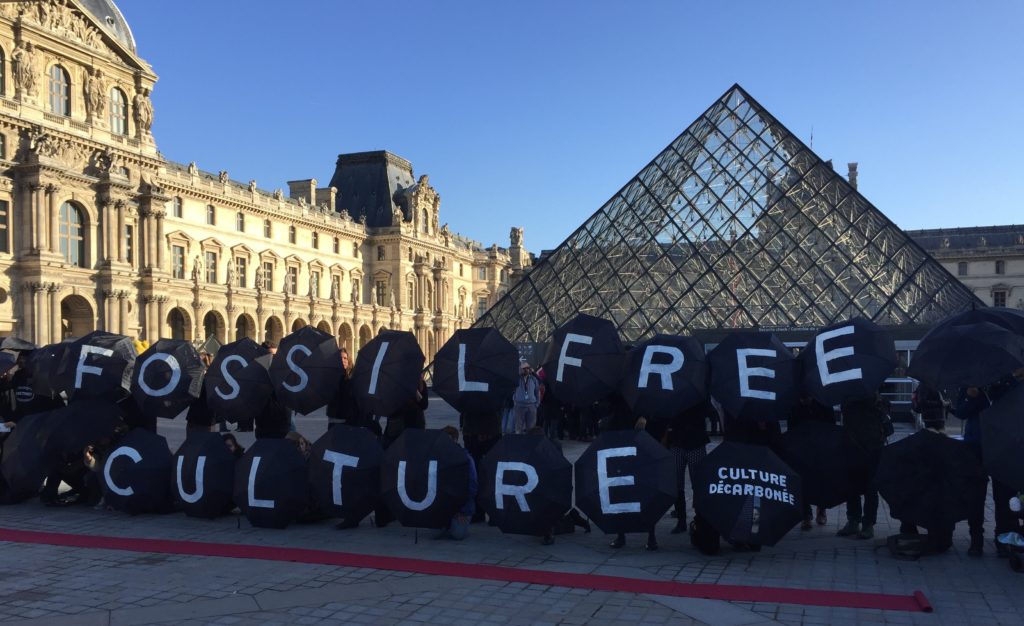
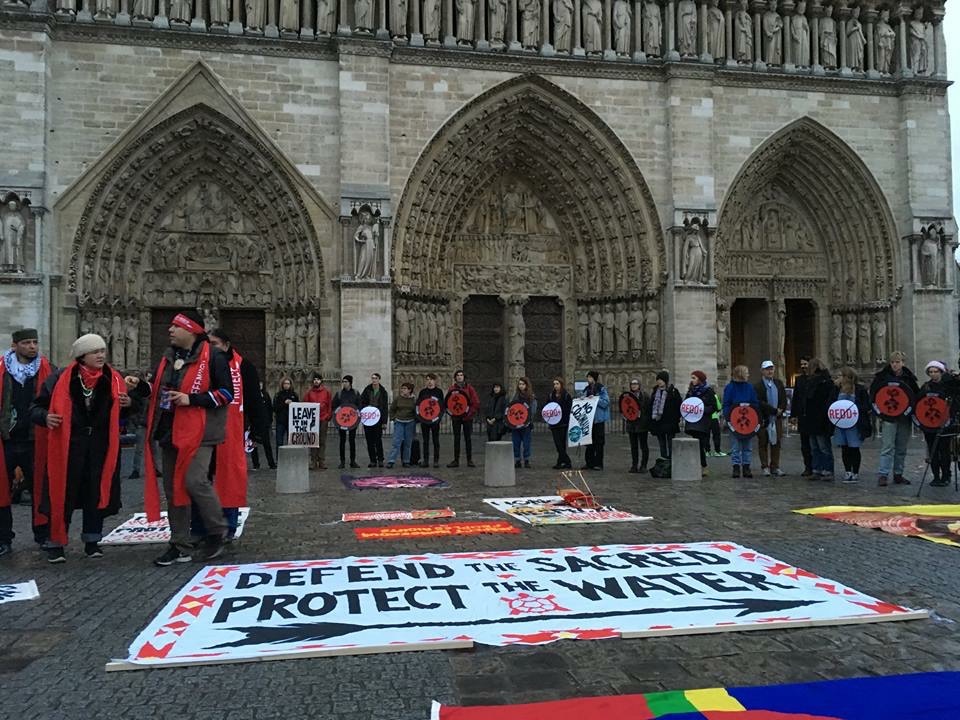
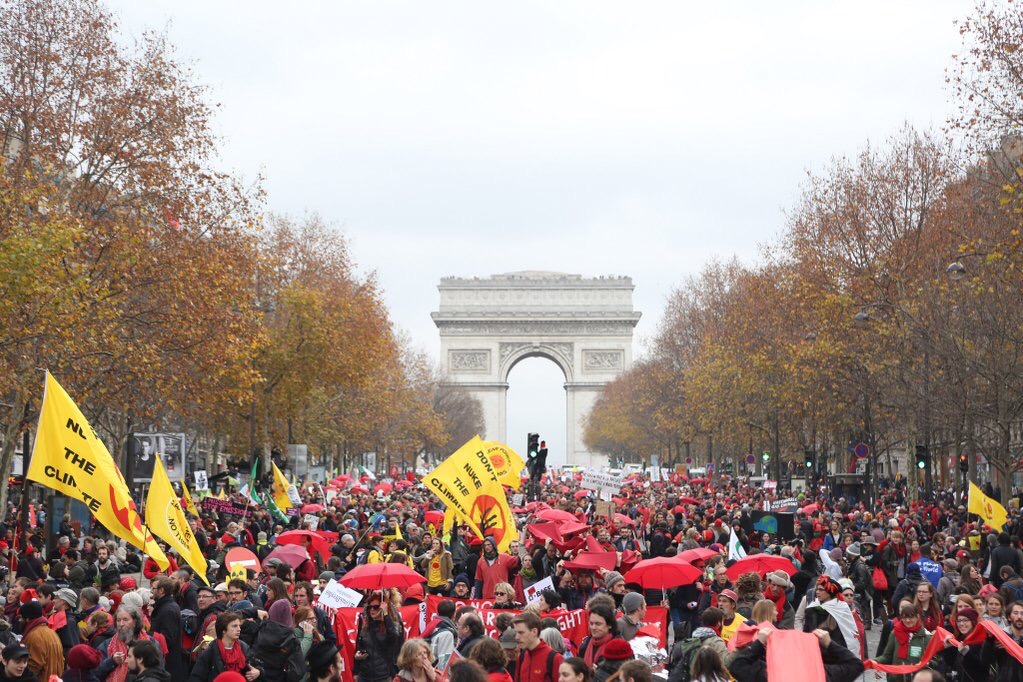
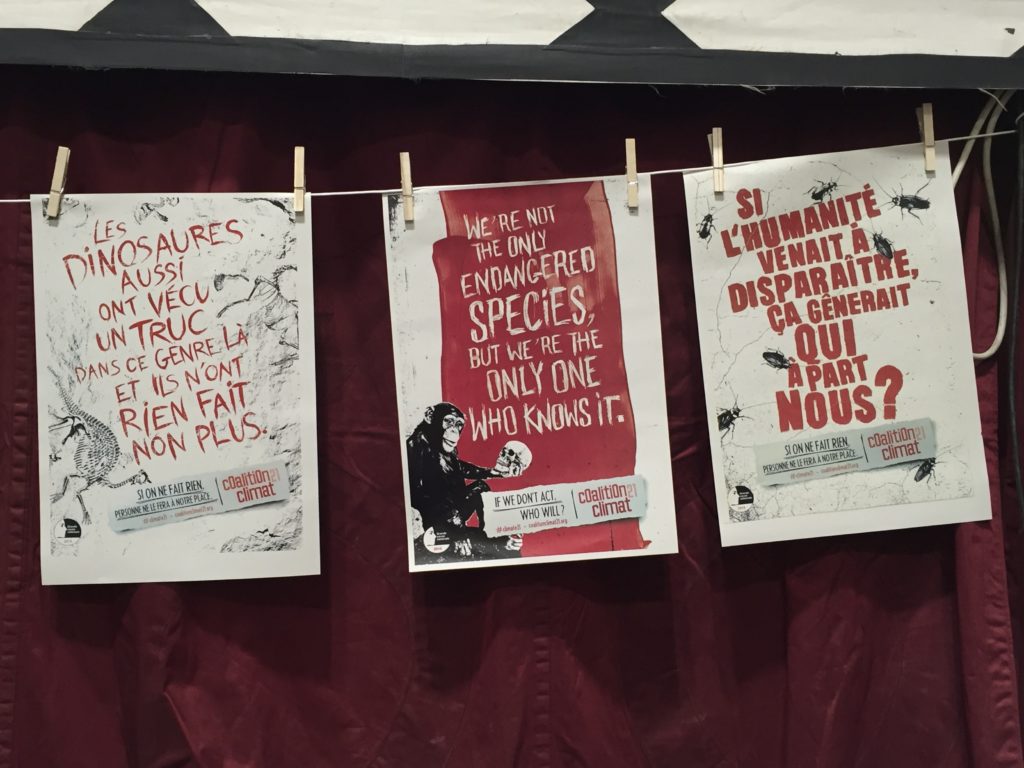
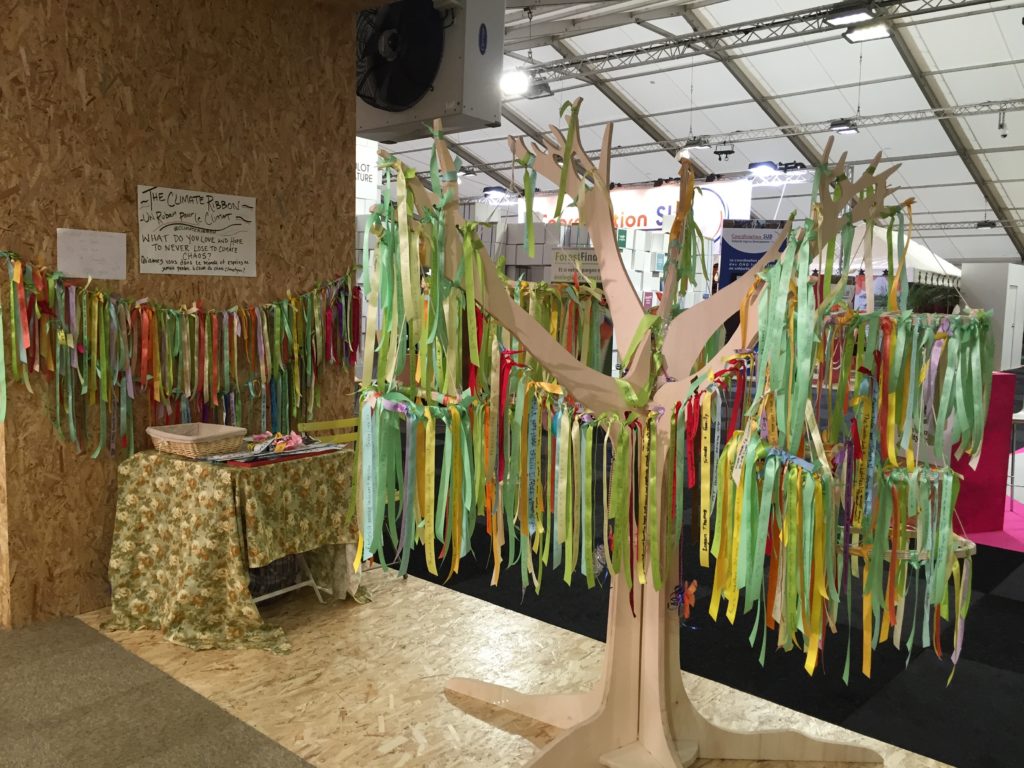
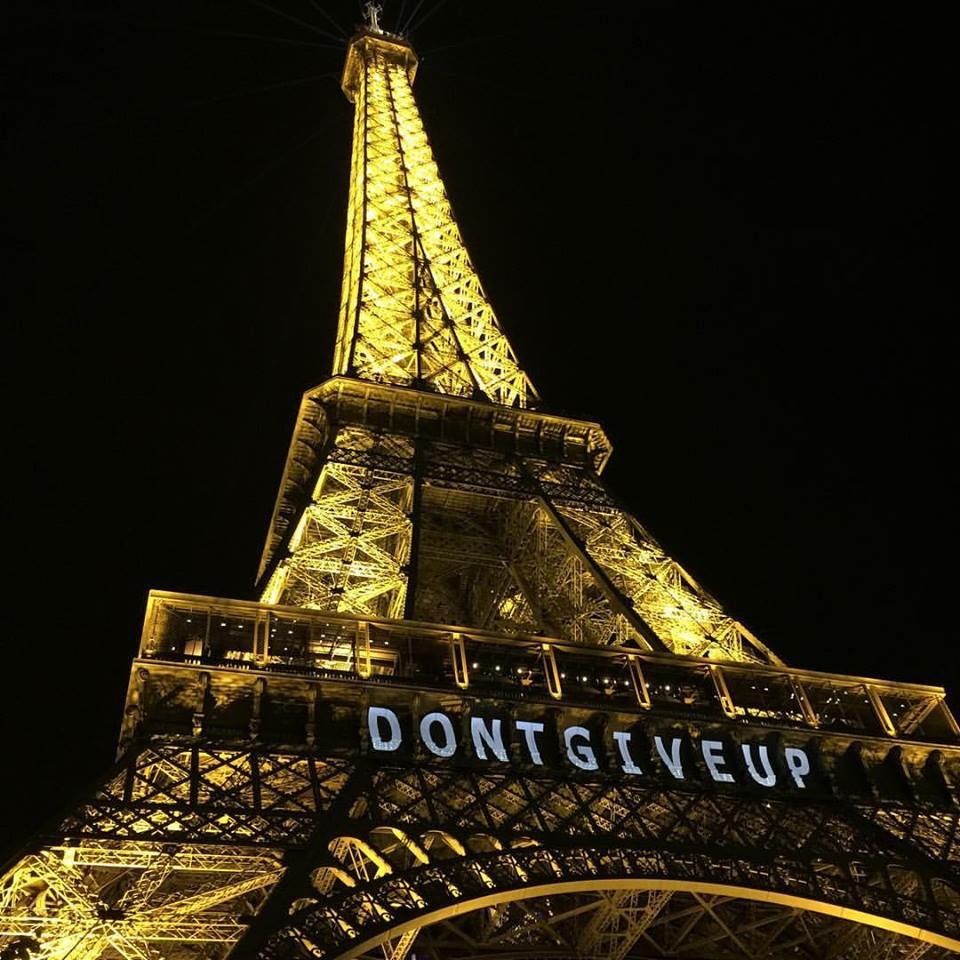
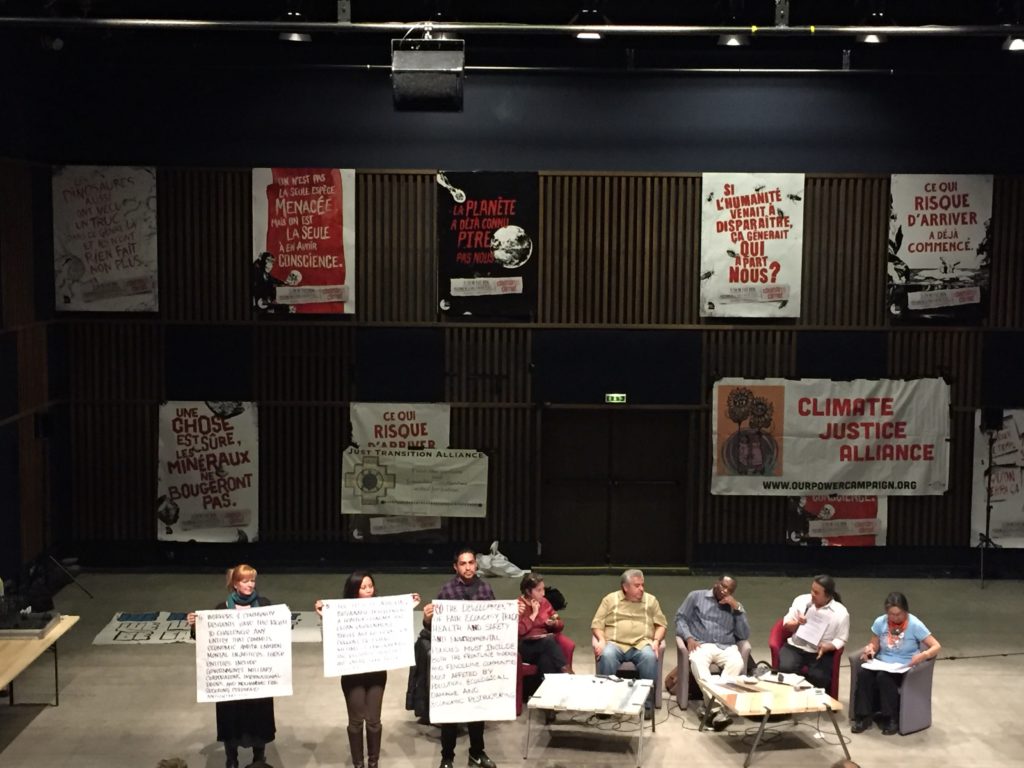
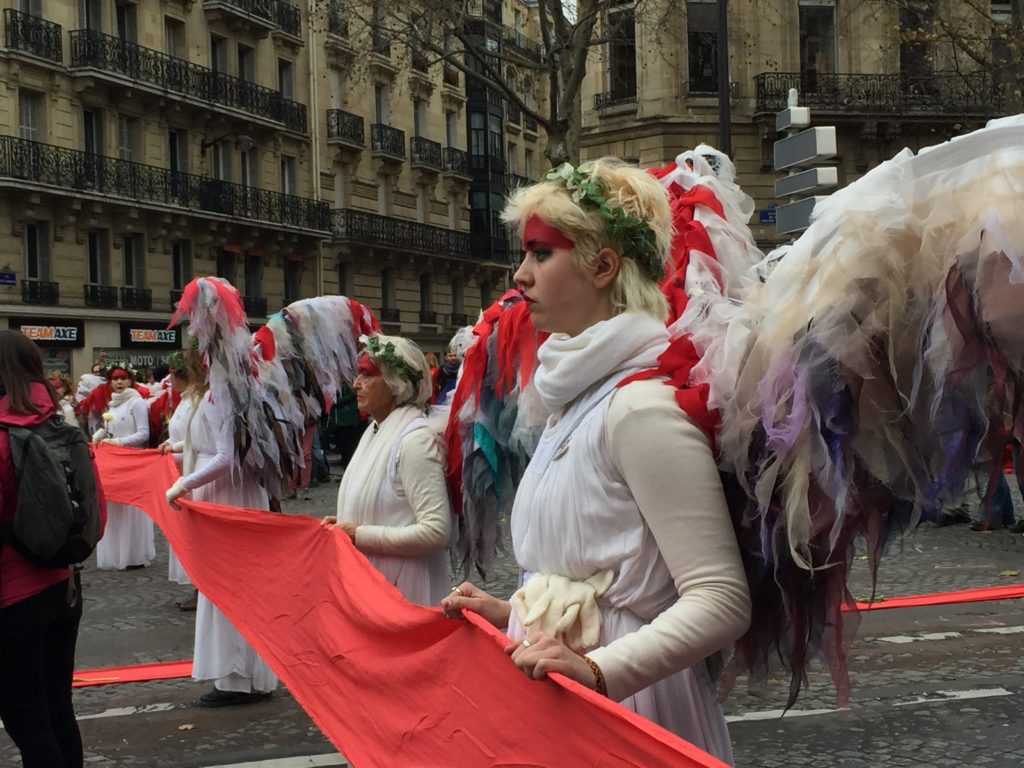
In the spring of 2016, additional grants aimed to support the climate movement to expand its political power in an important election year. Grants supported youth climate organizing in key states, coalitions in the rural Midwest to stop the Keystone XL pipeline, and civic engagement focused on empowering and mobilizing frontline communities to turn out to vote.
The global agreement that emerged from COP21 was an important milestone in a much longer fight for ambitious global climate action. And although the Trump administration attempted to take the U.S. out of the Paris Agreement, much of the movement infrastructure built for civic engagement in 2016 would go on to reshape the U.S. climate landscape: several grantees became founding members of the Green New Deal Network, and BOLD Nebraska was instrumental in eventually stopping the Keystone XL pipeline. The work continues to build a powerful, just climate movement in the U.S. and around the world.
Lessons Learned in Paris
Read then-Executive Director Ellen Friedman’s reflections on lessons learned from the Climate Initiative and the Foundation’s trip to Paris for COP21.
Read blog post